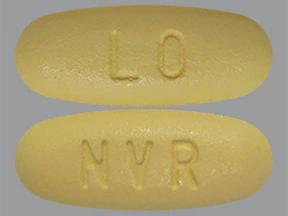Tabrecta Interactions
There are 309 drugs known to interact with Tabrecta (capmatinib), along with 4 disease interactions, and 1 alcohol/food interaction. Of the total drug interactions, 73 are major, 225 are moderate, and 11 are minor.
- View all 309 medications that may interact with Tabrecta
- View Tabrecta alcohol/food interactions (1)
- View Tabrecta disease interactions (4)
Most frequently checked interactions
View interaction reports for Tabrecta (capmatinib) and the medicines listed below.
- 12 Hour Nasal Decongestant Spray (oxymetazoline nasal)
- acetaminophen
- acetaminophen / hydrocodone
- Advil (ibuprofen)
- Advil Liqui-Gels (ibuprofen)
- Airborne (multivitamin with minerals)
- albuterol
- Aleve (naproxen)
- alfuzosin
- Allegra (fexofenadine)
- Allerest 12 Hour Nasal Spray (oxymetazoline nasal)
- alpha-lipoic acid
- alprazolam
- amlodipine
- atorvastatin
- azithromycin
- cephalexin
- dexamethasone
- Entresto (sacubitril / valsartan)
- hydromorphone
- lisinopril
- magnesium oxide
- melatonin
- potassium chloride
- Seroquel (quetiapine)
- Tagrisso (osimertinib)
- tramadol
- Tums Regular Strength (calcium carbonate)
- Vitamin D3 (cholecalciferol)
- Xgeva (denosumab)
Tabrecta alcohol/food interactions
There is 1 alcohol/food interaction with Tabrecta (capmatinib).
Tabrecta disease interactions
There are 4 disease interactions with Tabrecta (capmatinib) which include:
More about Tabrecta (capmatinib)
- Tabrecta consumer information
- Compare alternatives
- Pricing & coupons
- Reviews (1)
- Drug images
- Side effects
- Dosage information
- During pregnancy
- FDA approval history
- Drug class: multikinase inhibitors
- Breastfeeding
- En español
Related treatment guides
Drug Interaction Classification
| Highly clinically significant. Avoid combinations; the risk of the interaction outweighs the benefit. | |
| Moderately clinically significant. Usually avoid combinations; use it only under special circumstances. | |
| Minimally clinically significant. Minimize risk; assess risk and consider an alternative drug, take steps to circumvent the interaction risk and/or institute a monitoring plan. | |
| No interaction information available. |
Further information
Always consult your healthcare provider to ensure the information displayed on this page applies to your personal circumstances.


